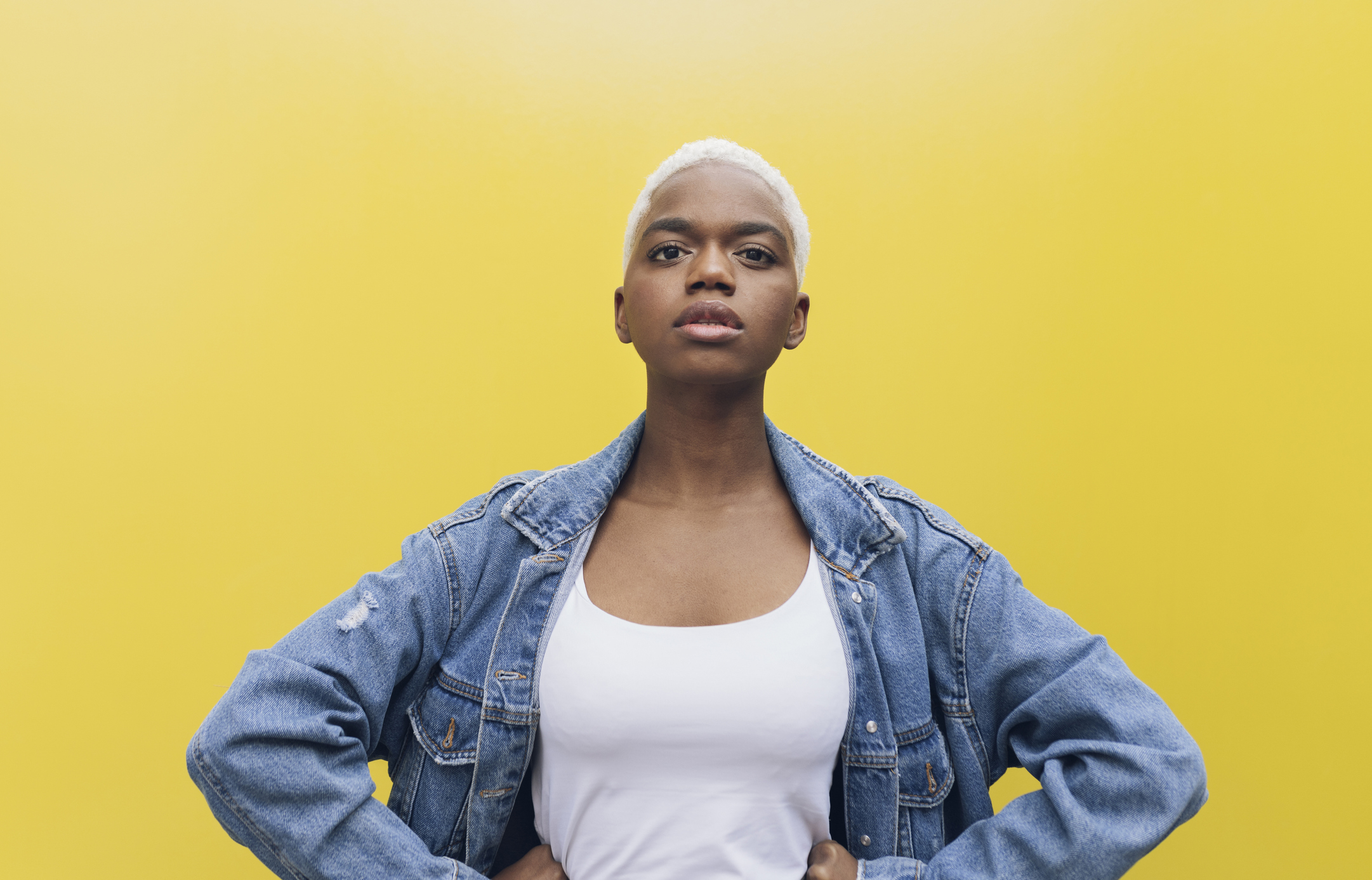At seventeen years old, I sat in a barbershop chair thinking about the plethora of affirmations I’ve been taught about my hair. “Your hair is your crown” and “you look so beautiful with long hair,” flashed through my thoughts. I shook my head, never understanding why my beauty was always connected to my hair.
When the barber asked if I was ready, I smiled defiantly. I knew my mom would freak out, but I felt confident about deciding to big chop. Since then, I’ve rocked a very low haircut.
Now, as a Black woman in my late twenties, I find it essential to explore the complex relationship many of us have with our hair. Our hair is a symbol of resilience, history, and identity. Throughout the ages, Black women have faced societal pressures, judgments, and standards about their hair, which often made it difficult for us to consider cutting it.
A Brief History of Black Hair
The history of Black hair is a testament to our resilience and creativity. Ancestors adorned their hair with intricate braids, beads, and shells, creating beautiful and culturally rich hairstyles. These traditions date back centuries and were a source of pride, connecting Black people to their African heritage. However, the transatlantic slave trade brought a brutal practice of shaving the heads of enslaved peoples and stripping them of their cultural identity.
After slavery, the struggle for acceptance and self-expression through hair continued. Black women were fed Eurocentric beauty standards of long, straight hair. This prompted many to seek ways to achieve a more “acceptable” appearance. Often, this meant sitting in the beauty salon for hours and using harsh chemicals and hot combs to straighten it.
Hair Movements in the United States
Over the years, there have been movements that sought to challenge these beauty standards. They empowered Black women to embrace their natural hair. The Black is Beautiful movement of the 1960s and 1970s was instrumental in celebrating our natural hair and encouraging self-acceptance.
Black hair strongly aligned with Black principles and the Black power movement. Rightfully so, Black hair emerged as a political statement. Many Black women began rocking huge afros.
In turn, long and voluminous hair was seen as more feminine. And for a while, it seemed like you must have long hair to advocate for blackness.
In this context, choosing short hair was a powerful act of self-determination and self-expression, challenging rigid gender and beauty norms. It’s a reminder that our appearance doesn’t define our worth, and we should celebrate our individuality without fear of judgment or societal constraints.
Societal Judgments and Pressure
The societal judgments and pressure faced by Black women when it comes to our hair are deeply rooted in racism and colonialism. For decades, Black women have been subjected to ideals that fail to appreciate the beauty and diversity of Black hair. Our natural textures were deemed “unprofessional” or “inappropriate” and still are today. We face everything from microaggressions to overt discrimination based on our hair.
And unfortunately, Black women with short hair were seen as overly masculine. However, when a woman confidently rocks a fade, petite afro, or a chic super short haircut, it’s a statement of her unique self-expression and defiance of gender norms. This choice is particularly daring in a predominantly heterosexual and masculine society.
The Myth of Hair Growth
Many of us grew up hearing from our mothers, grandmothers, and aunties that long hair was the epitome of beauty. This message has been passed down through generations. On the other hand, there were stigmas about Black women not being able to grow hair past their ears or shoulders, especially for women of darker skin tones who faced even more discrimination.
The reality, however, is that Black hair can grow long and healthy when properly cared for. But the obsession with length overshadowed the appreciation of our hair in any state.
Embracing Our Authentic Selves
In recent years, a powerful shift has taken place among Black women. We have become increasingly confident and comfortable with our hair in whatever form it may be. It’s now common to see Black women sporting shortcuts, bald heads, or a variety of natural hairstyles that celebrate our unique textures and beauty.
The journey of Black women and our relationship with our hair has been complex and often painful. For too long, we’ve been made to feel inadequate or unattractive because our hair didn’t fit in. However, we are reclaiming our narrative, embracing our beauty, and celebrating our authentic selves. This transformation didn’t happen overnight. It resulted from a collective awakening and a growing recognition that our hair, short or long, is not only beautiful but also an integral part of our identity.
So, for those Black women who have hesitated to cut their hair due to societal judgments or internalized beauty standards, know that your choice to embrace yourself is a powerful act of self-love and resistance
Aysia Morton, a culture and travel writer, wrote this story.
